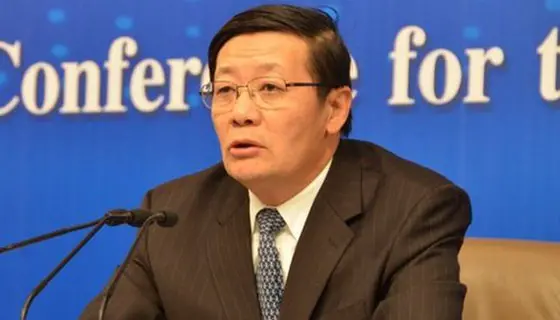Kenyan President Uhuru Kenyatta on Sunday evening called on striking teachers to reconsider their stance and resume duty, reiterating that the present economy cannot sustain an expanded wage bill.
In a televised address to the nation, Kenyatta said the salary increment of between 50-60 percent being demanded by tutors is untenable as the countrywide industrial action enters its fourth week on Monday.
"I urge all teachers as parents, as public servants, and as Kenyans to reconsider their position on this matter, and to resume their duties, in the interests of our children," Kenyatta said.
"Let me also encourage teachers and their unions to represent themselves honestly to those who pay their wages," he said. "Let us remember that it is our future, and that of our children, that is at stake. I urge sobriety and sincerity on the part of all parties, as we handle this issue."
Speaking for the second time since over 280,000 teachers downed tools on Aug. 31, Kenyatta said the current wage bill was already overstretched in relation to the economy.
"The fact of the matter is that to pay this award, we would have to raise VAT from 16 percent to 22 percent, or borrow more money or suspend critical development programs and essential services in health, in education and in security," Kenyatta said.
He said raising taxes, borrowing more money or cutting back on development programs will raise the cost of living, slow down the East Africa's biggest economy, and increase unemployment and poverty.
"None of these options is tenable. Our country must live within its means," he stressed, dismissing claim that Kenyan teachers are paid less than their colleagues in the East African region.
The Kenyan leader noted that the figure as compared to other middle-income countries like Kenya where the wage bill represents on average 35 per cent of their total revenue. Kenya's wage bill, he said, is 52 percent of the revenue.
"The lowest-paid teacher in Kenya earns seven times as much as his counterpart in Burundi," said Kenyatta.
Kenya's wage bill is at 10 percent of the country's gross domestic product, doubles that of other middle income countries, Kenyatta said. He said the wage bill will rise to 61 percent of all revenue collected if the government was to honour the teachers demands.
Kenyatta also noted that awarding teachers' pay hike would set a bad precedence since the Salaries and Remuneration Commission (SRC), a body tasked with harmonizing salaries for all government workers, will be required to harmonise the new salaries with that of all other public servants.
The teachers have vowed not to return to class until the government meets their demands in a dispute that has been ongoing for over a decade.
The strike has affected close to 12 million students, 10 million in primary schools and the rest in secondary schools across the East African nation, and it is making pupils lose hope.
This prompted the government on Friday to close even the private shools. However, the association of private schools has vowed to defy the directive.
The impact of the four week industrial action by teachers continues to be felt across public schools in the country, with college students and retired teachers reported to be volunteering to teach in public schools.
The Kenya National Union of Teachers (Knut) and Kenya Union of Post Primary Education Teachers (Kuppet), the organizers of the strike, are however adamant, saying that the teachers would only head back to class after a pay increase.
KNUT Secretary General Wilson Sossion said they will call for executive meeting on Monday to plot the next course of action and accused the president of not seeking dialogue to resolve the crisis. Enditem
 简体中文
简体中文

